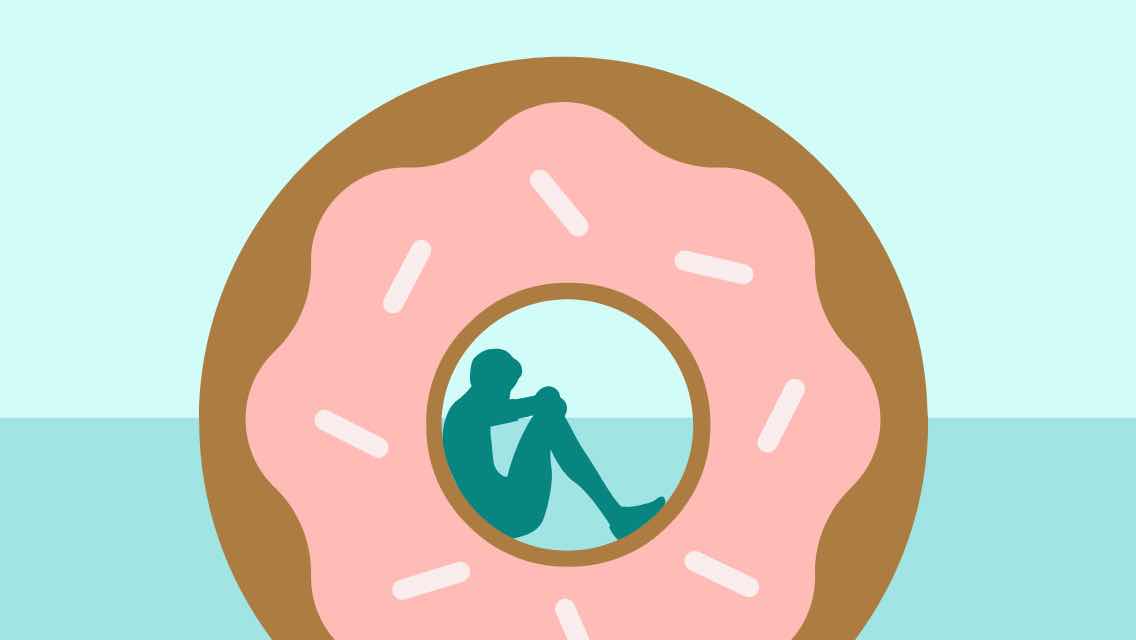What causes mental illness? Despite centuries of research, the answer remains ambiguous. Though certain risk factors — stress, trauma, genetics — increase the odds, an understanding of how and why they lead to mental illness in some and not others continues to elude us. Yet some revolutionary (and surprisingly simple) findings are emerging.
By chance, a weight-loss intervention upended perceptions for psychiatrist Christopher Palmer, MD, an assistant professor at Harvard Medical School.
Palmer had been working for years with a patient diagnosed with schizoaffective disorder, a chronic condition that involves debilitating mood and psychotic symptoms. Despite years of medication trials, he still experienced hallucinations, paranoia, and delusions.
The patient also asked for help losing weight; Palmer suggested trying a ketogenic diet, which limits carbohydrates in favor of high-fat foods. He had noticed mood improvement among some patients who adopted the diet.
Sure enough, after a few weeks, his patient reported fewer depressive symptoms. Two months later, he said, “You know those voices I hear all the time? I think they’re going away.”
As his hallucinations subsided, the patient began questioning the paranoid delusions that had left him terrified for decades. He soon moved into his own apartment, enrolled in school, and even performed improv.
Palmer was astounded: How could something as simple as nutrition so dramatically reverse these seemingly intractable diseases? He began wondering whether mental illness is not a brain disorder that corrupts our system, but a systemic disorder that corrupts the brain.
Inflammation is one of the body’s natural healing responses — but chronic inflammation can be deadly. It can occur in response to prolonged exposure to infections or toxic chemicals, or as a result of recurrent acute inflammation or certain autoimmune disorders.
In recent years, researchers have begun considering whether chronic inflammation contributes to psychiatric disorders.
Inflammation affects our mitochondria, which serve as the power plants of our cells and affect regulation of our hormones and neurotransmitters. The brain is highly sensitive to fluctuations in mitochondrial functioning, largely because it uses an outsize proportion of energy. Mitochondrial dysfunction has been linked not only to neurodegenerative disorders such as Alzheimer’s disease but also to mental illnesses including major depression and bipolar disorder. (See “The Care and Feeding of Your Mitochondria” to learn more about the impact healthy mitochondria have on your health and well-being.)
Determining whether mitochondrial dysfunction is a cause of mental illness remains complicated: These disorders manifest in far more heterogenous fashion than their medical counterparts, making isolation of inflammatory biomarkers related to psychiatric dysfunction difficult.
Yet the possible link may be a game-changer, because, unlike our genes or our childhood experiences, mitochondrial functioning is something we can control.
If diet affects inflammation, inflammation affects mitochondria, and mitochondrial functioning affects mental health, a change to the first element of that chain reaction should affect the last.
A ketogenic diet is not the only tool for reducing inflammation and improving mitochondrial -functioning. Physical exercise works wonders, while sleep, stress management, and supplements and hormone-replacement therapies can also be effective.
Most likely, a combination will generate the greatest impact. Palmer likens treatment to gardening: A healthy plant requires sun, water, and good soil — not simply one of these things. Therefore, it’s unlikely that any single treatment will ever offer a silver bullet.
This article originally appeared as “The Link Between Inflammation and Depression” in the January/February 2023 issue of Experience Life.





This Post Has 0 Comments